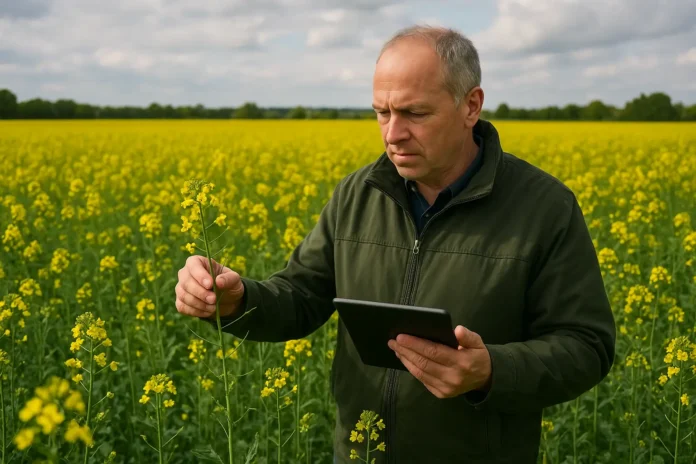PepsiCo, Mars and ADM have joined forces on a new regenerative agriculture programme in Poland. The aim: to help farmers improve soil health, cut emissions and secure long-term resilience for key crops.
The scope
-
The initiative supports 24 farmers in western Poland.
-
It covers 5,454 hectares of farmland.
-
PepsiCo is focusing on rapeseed oil for Lay’s and Doritos.
-
Mars is backing wheat production for pet food brands like Whiskas and Pedigree.
-
ADM is acting as an implementation partner, with funding, sourcing support and technical expertise.
The approach
The project is designed as a holistic, farm-wide model rather than a single-crop trial.
-
Rotational farming will be used, alternating cereals, legumes and cover crops.
-
Farmers will test methods to cut synthetic inputs, boost water retention and lock in carbon.
-
Practices such as conservation tillage and cover cropping are incentivised with financial rewards.
-
Specialist partners such as Biospheres will provide technical training and field support.
The goals
-
Stronger soils and higher resilience to climate shocks.
-
Lower greenhouse gas emissions across the supply chain.
-
A more secure supply of wheat and rapeseed for the companies’ brands.
Executive voices
-
PepsiCo’s Chief Sustainability Officer Archana Jagannathan said regenerative agriculture is “vital for soil health and farm resilience” and part of PepsiCo’s global aim to implement regenerative practices on 10 million acres by 2030.
-
Mars’ Global Commercial VP Paul Gardner said the deal shows how pre-competitive collaboration can deliver real change, with farmers supported across multiple crops and harvests.
-
ADM’s Chief Sustainability Officer Katherine Pickus said the project will help standardise and accelerate regenerative practices, strengthening supply chains for the future.
Why Poland matters
-
The country is seen as a test market where sustainable farming practices are at different stages of maturity.
-
Impact will be tracked with the Cool Farm Tool, a calculator that measures emissions and soil benefits.
-
Insights from the programme could be scaled up to other European regions and beyond.
The bigger picture
-
PepsiCo has worked with Polish farmers for more than 30 years.
-
This collaboration is part of a broader industry trend where rivals partner to tackle supply chain risks.
-
It reflects pressure on food companies to meet climate targets while securing raw materials at scale.



